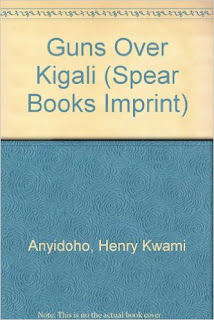Author:
Henry Kwami Anyidoho
ISBN: 9970-02-143-5
Publisher:
Foundation Publishing
Year:
1998
Softcover
Pages:
131
Photos/
Maps: 34/4
This
book is a rendition of the author’s experiences as Deputy Force Commander and
Chief of Staff for the United Nations Assistance Mission for Rwanda (UNAMIR)
during the period of the Rwandan Genocide April – July 1994. Brig Anyidoho kept
an extensive diary throughout his time with UNAMIR and drew upon these notes
and his recollections to draft this treatise on his experiences and to provide
a series of lessons learned from the disaster. The accuracy of his observations
and recommendations and their relevance to future UN peacekeeping missions was
confirmed when many of them were included in the Brahimi Report of 2000 which
saw a fundamental overhaul of the UN support and operational ethos.
The
author was intimately involved in the period leading up to the civil war and
was present throughout the fighting. As such, he was either personally involved
or privy to the myriad of challenges relating to negotiations and interactions
with Rwandan forces (both Hutu and Tutsi), the international community as well
as the UN itself. His insights into the bureaucracies, trials and idiosyncrasies
of these organizations and their public and private agendas are extremely
enlightening.
Throughout
his account, the author comments upon the strengths and weaknesses of the UN
system in particular, both logistically and operationally. His views are based
on hard operational experience and, being noted at the time of observation, are
astute and germane. While it is obvious that he was frustrated by what he
perceived as inefficiencies, his approach is not one of blame but of a genuine
desire to see the system improved.
He
includes in his work an introduction to the causes and history of the Rwandan
Crisis, a specific series of recommendations relating to national level command
preparation and training, the UN and its policies (politically, operationally
and logistically) and the shortcomings in the reactions/capabilities of the
Organization of African Unity (precursor to the African Union) and how these may
be addressed. Additionally, his work incorporates lessons learned throughout
the narrative itself.

No comments:
Post a Comment